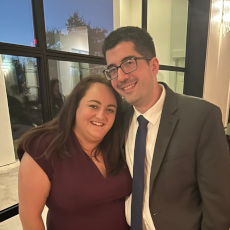Can I Go to the OBGYN Without My Parents in Tennessee? Your Rights and Options Explained
Yes, you can go to an OBGYN without your parents knowing in Tennessee if you're pregnant and over 14. You have more options than you might realize when it comes to getting the healthcare you need right now. Even with recent changes to local laws, pregnant teens over 14 still have specific legal rights to prenatal care without involving your parents. Understanding what's available can help you make the choice that feels right for your situation and connect with the support you deserve during this time.
This guide walks you through everything you need to know about getting OBGYN care as a teen in Tennessee—from understanding what the law says to figuring out insurance questions and finding doctors who truly respect your privacy.
Can I Go to the OBGYN Without My Parents Knowing in Tennessee?
The short answer: Yes, if you're pregnant and over 14. Here's something that might surprise you: Tennessee law has specifically protected pregnant teens over 14 for years, giving you the right to prenatal and postpartum care without needing to bring your parents into it. This protection has been on the books for a long time and stays strong despite recent legislative changes that have affected other areas of teen healthcare.
Things did shift a bit in July 2024 when Tennessee put new parental rights laws into effect. While these changes created some restrictions for routine healthcare at public health clinics, the good news is that the laws protecting pregnancy-related care haven't changed. Private doctors' offices often work with teens more easily than public clinics anyway, since many of them already understand the sensitive nature of teen pregnancy and have their own ways of protecting your privacy.
Tennessee also has something called the "Mature Minor" doctrine that comes from court cases going back decades. This legal principle basically says that if you can show you understand your situation well enough and can think through your options thoughtfully, you have the right to make medical decisions for yourself. This works hand-in-hand with the specific laws about pregnancy care, giving you even more legal backing for your healthcare choices.
Here's what Tennessee law protects for you:
- Access to prenatal care if you're pregnant and over 14
- Private conversations with doctors about your pregnancy choices
- Protection from doctors having to tell your parents about pregnancy-related care
- Your right to decide what happens with your pregnancy
Knowing these rights can help you feel more confident about seeking the medical care you need without worrying about unwanted disclosure or legal problems.
Accessing Confidential Care
Getting confidential prenatal care takes a little planning, but there are definitely ways to make it happen. Private OBGYN offices are usually your best bet since they tend to be more flexible and many already have experience working with teens in situations like yours. They understand that pregnancy at your age comes with unique concerns about privacy.
When you're looking for a healthcare provider, it's totally okay to ask direct questions about how they handle privacy before you even make an appointment. Most doctors and nurses genuinely want to help and will be upfront about their policies. Don't hesitate to ask things like what their specific approach is with teen patients, whether they'll need to contact your parents about anything, and how they handle billing and insurance matters that might tip off your family.
Will My Doctor Tell My Parents I'm Pregnant?
Most doctors take patient privacy seriously and work hard to keep your information between you and them, even when it comes to your parents. The good news is that laws generally back this up—doctors are expected to keep things like your pregnancy test results, what happens during your prenatal visits, conversations about your choices, and any treatments you get completely private.
That said, there are a few situations where doctors might need to share information, and it's important you know about them upfront. If they're genuinely worried about your safety because of possible abuse or neglect, they're required by law to report it—this is about protecting you, not getting you in trouble. In real emergencies where your life might be in danger, they may also need to break confidentiality to get you the help you need. You always have the choice to give permission for information to be shared if you want to, and very rarely, courts can require doctors to share information, though this almost never happens in situations like yours.
The "Mature Minor" doctrine gives you an extra layer of protection if you can show that you understand your situation and can make thoughtful decisions about your care. When doctors talk with you, they're looking at things like how well you understand what's happening with your pregnancy, whether you grasp what different treatments might mean for you, and how you handle conversations about your choices. Many teens are surprised to discover they're more capable of speaking up for themselves and making these decisions than they initially thought.
Building a good relationship with your doctor or nurse makes everything so much easier. When you feel comfortable being honest about what's going on and asking the questions that are really on your mind, you're much more likely to get care that actually fits what you need throughout your pregnancy. Most healthcare providers genuinely want to help and will work with you to make sure you feel heard and supported, not judged.
Insurance and Payment Concerns
Can I use my parents' insurance without them finding out? Using your parents' insurance while keeping things private can feel like solving a puzzle, but it's one that plenty of teens have figured out before you. Here's the deal: after you see a doctor, your insurance company automatically sends a document called an Explanation of Benefits to whoever pays for the insurance—which is usually your parents. This document shows when you had an appointment, what kind of doctor you saw (like an OBGYN), what general type of care you got, and how much everything cost.
The good news? You have more ways to handle this than you might think. A lot of doctors' offices get that teens sometimes can't use family insurance and they'll work with you on payment plans or offer reduced fees that actually make care affordable. Tennessee also has a program called CoverKids that's designed exactly for situations like yours—it covers everything from your first prenatal appointment all the way through delivery and even gives you two months of care after your baby is born, usually for very little money out of your pocket.
Some teens explore requesting confidential communications from their insurance company, asking them to send EOBs to alternative addresses or suppress certain information. Organizations focused on reproductive health often maintain special programs for teens and may work with patients on flexible payment arrangements.
Medicaid and CoverKids have their own privacy rules, though you might still run into the same issue with statements going to your parents' address. But these programs often cut teens some extra slack and may have additional ways to protect your privacy that regular insurance doesn't offer.
Paying out of your own pocket is worth considering if keeping things completely private is your top priority. A lot of providers will give you a break on the cost when you're paying directly, and some clinics focus specifically on helping teens regardless of whether they have insurance or not. Community health centers, family planning clinics, and providers who advertise that they're teen-friendly often take the most flexible approach to both payment and privacy.
When researching providers, ask specific questions about their policies for teen patients. Important questions include whether they provide confidential care for pregnant teens, their parental notification policies, whether they accept CoverKids or offer payment plans, and their ability to work with patients on maintaining privacy.
Getting Support Before Medical Care
Taking some time to talk through everything that's on your mind before you see a doctor can make a world of difference in how prepared and confident you feel walking into that appointment. Pregnancy brings up so many questions and feelings all at once, and having someone in your corner who really gets what you're going through can help you handle both the practical stuff—like which questions to ask—and the emotional roller coaster that often comes with all of this.
Talking through concerns in a judgment-free environment allows teens to understand all available options before making decisions. This support helps teens learn about local resources, feel more prepared for medical appointments, and receive emotional support during challenging times. This preparation often leads to more productive healthcare visits and better communication with medical providers.
If talking through your situation sounds helpful, our helpline is available anytime, day or night, at 1-800-ADOPTION. These conversations can cover whatever's weighing on you—questions about what rights you have, help finding healthcare providers in your area, information about different paths you could take with your pregnancy, connections to local resources you might not know about, or just having someone listen who's been there with other teens going through similar experiences.
Talking with someone before your healthcare appointments isn't just helpful—it often makes the whole experience feel less scary and more manageable. These conversations can help you figure out what questions you really want to ask your doctor, give you a better idea of what to expect during medical visits, and provide a safe space to work through all the emotions that come up when you're dealing with an unplanned pregnancy.
How We Can Help Navigate This Journey
Having someone to talk with who's walked alongside other teens in situations like yours can make a real difference. At American Adoptions of Tennessee, we've spent years learning which resources actually work and how to help teens access the care they need throughout our state.
Your privacy is fundamental to how we work—we never contact parents or share information without your permission. Whether you're considering parenting, curious about adoption, or still figuring things out, you deserve support that meets you where you are without any pressure.
If you're looking for help navigating healthcare, understanding programs like CoverKids, or just need someone to talk through everything you're feeling about an unplanned pregnancy, we're here. Being based in Tennessee means we know which doctors work well with teens, which programs actually deliver, and how to access resources across our state.
Key takeaway: Tennessee teens over 14 have strong legal rights to confidential pregnancy care, multiple payment options exist including CoverKids, and support is available to help you navigate healthcare decisions and everything else that comes with this. Taking care of your health is the most important thing you can do right now. You don't have to figure any of this out by yourself.
Disclaimer
Information available through these links is the sole property of the companies and organizations listed therein. American Adoptions provides this information as a courtesy and is in no way responsible for its content or accuracy.







































